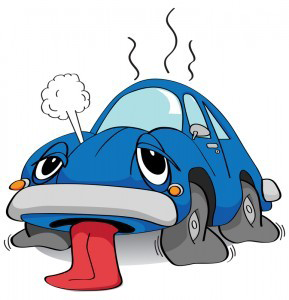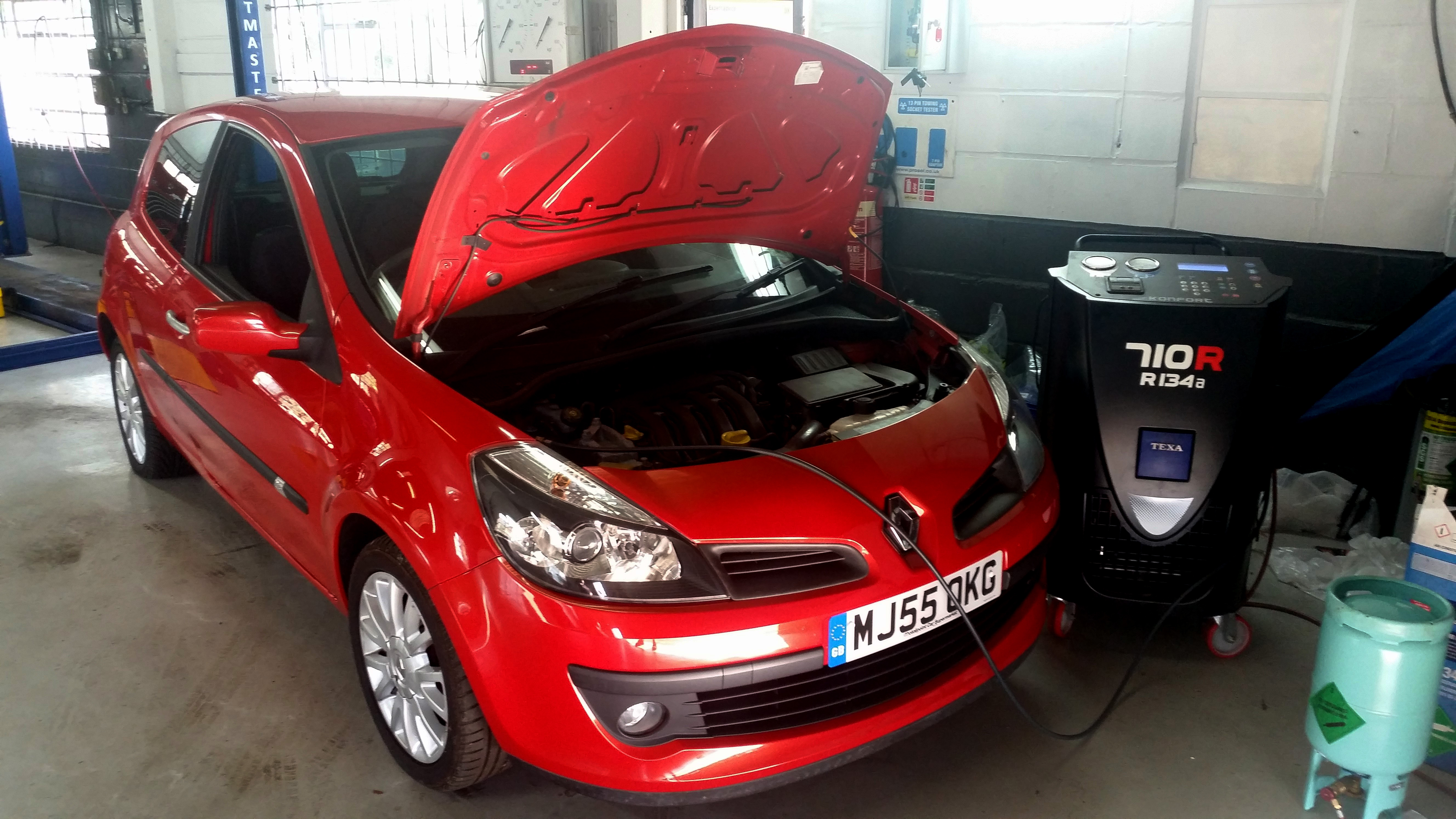Air Conditioning
We offer a range of options to suit your needs, from a bacterial clean, a Re-Gas, to a full Air Conditioning Diagnostic service.
We are also able to provide Air Con Recharge for newer vehicles that require R1234yf gas and hybrid vehicles.
Full details of our service options can be found below.

What Will It Cost?
Assuming no leak is found, a full recharge will be carried out in line with your vehicle manufacturers recommendations and the following charge will apply:
Full Recharge using R134a: £65 inc VAT
This Includes:
- Air Con system inspection
- Full R134A refrigerant recharge specific to your model
- Recovery of old refrigerant
- Replacement of lubricating oil
Full Recharge using R1234yf: £125 inc VAT
This Includes:
- Air Con system inspection
- Full R1234YF refrigerant recharge specific to your model
- Recovery of old refrigerant
- Replacement of lubricating oil
An Air Con System Inspection is required prior to recharge to check for any possible leak in the system. This inspection is already included our recharge prices. If we do find a leak, you will not be charged for a full recharge and will only pay £35.00 for the inspection. We will of course advise you on any leak found.
Additional Services
Antibacterial Clean £21.95 inc VAT
Over time you may notice an odd, musty smell in your car, when using the Air Conditioning. That smell is caused by a build up of mould and bacteria on the evaporator. During use, the evaporator gets damp, and with damp, comes mould and bacteria, hence the smell. Our Antibacterial Clean will eliminate this and ensure no more nasty smells
Which Refrigerant Does My Car Need?
Older cars use the traditional R134A gas. However, all cars manufactured from 2017 onwards use the new gas R1234yf. This new gas produces 98% fewer pollutants than R134A, however, it is significantly more expensive. The gas is not interchangeable, so we have to use the correct gas that your vehicle was designed to use.
In addition to newer cars, some manufacturers switched to the new gas before 2017. Please scroll down for a list of older vehicles we believe to be using R1234yf.
- Alfa Romeo 4 C
- Audi A1 / A3 / A4 / A5 / A6 / A7 – Also applies to S & RS variants (2014>)
- Audi Q3 / Q5 / Q7 – Also applies to S & RS variants (2014>)
- BMW i3
- Chevrolet Spark (2014)
- Chevrolet Trax
- Chrysler 300 (2014)
- Citroen C4 Cactus
- Citroen C4 Picasso
- Ferrari F150
- Fiat 500x (10/14)
- Fisker Karma
- Hyundai i10
- Hyundai i20
- Hyundai i30
- Hyundai Santa Fe
- Infiniti Q50
- Jaguar XK X150
- Jaguar F-Pace (2016)
- Jaguar F-Type (2016)
- Jaguar XE (2016)
- Jaguar XF (2016)
- Jaguar XJ (2016)
- Jaguar XJL (2016)
- Jeep Cherokee (2014)
- Jeep Renegade
- Kia Carens
- Kia Cee’d
- Kia Optima
- Kai Soul
- Kia Sorento
- Land Rover Discovery Sport (2015)
- Lexus GS250
- Lexus GS450h
- Lexus NX300h
- Lexus RC F
- Lotus Elise
- Lotus Exige S
- Maserati Quattroporte
- Mazda CX3 (MY17)
- MG 3
- Mitsubishi Mirage
- Nissan Note
- Nissan Pulsar
- Nissan Qashqai
- Nissan X-Trail
- Peugeot 308
- Range Rover Evoque L538 (2013)
- Range Rover L405 (2014)
- Range Rover Sport (2014)
- Renault Twingo
- Renault Zoe
- Subaru Forester
- Subaru Impreza
- Subaru BRZ
- Suzuki Celerio
- Suzuki SX4
- Tesla Model S
- Toyota GT86
- Toyota Prius Plus
- VW Golf GTI 2016
- VW Jetta 2016
- VW Passat 2016
- VW Polo 2016
- VW Scirocco 2016
- VW Sharan/Tiguan/Touran 2016
- VW Up 2016

